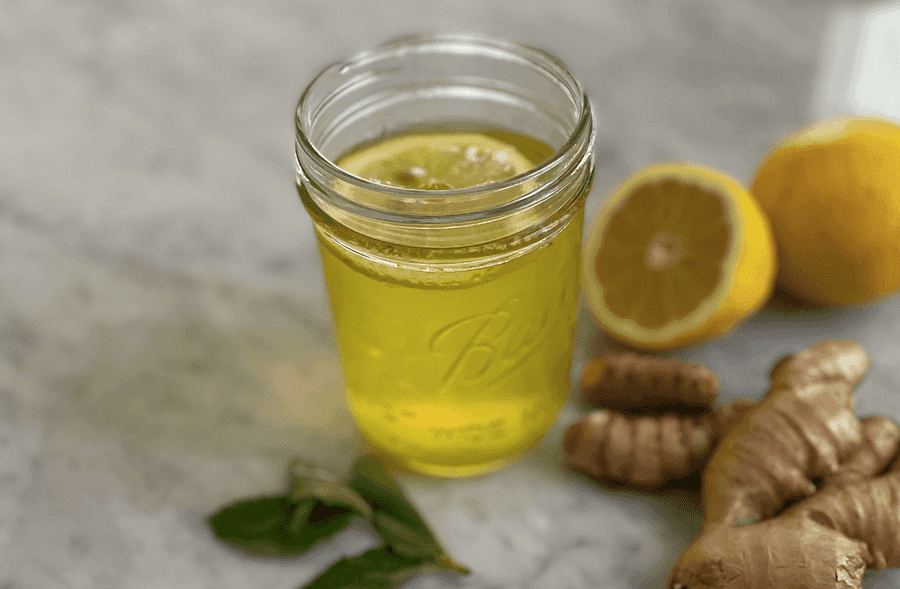Detoxifying Herbal Tea
by Amylee Amos PhD, RDN, IFMCPRecipes
Toxins are ubiquitous in our environment. We are exposed to toxins in the food we eat, the water we drink, the air we breathe, and in the items we touch. We can’t escape exposure to toxins despite our best efforts at living a healthy lifestyle. However, certain lifestyle changes, such as eating organic foods, spending time in nature, and avoiding toxic items like single use plastics can greatly reduce our exposure to toxins.
Research on toxins and the health implications of our toxic exposure is challenging to conduct. The total body burden of toxins all interact and cause physiologic dysfunction, especially in susceptible individuals who can't move toxins out of their system properly. But research on toxins is done individually, not on the complex synergistic effect of cumulative toxin interaction, which often leads to a false sense of security regarding toxic exposure. In other words, the naturally flawed methods that we currently use to study the effects of toxin exposure and the subsequent misrepresentation of the results causes mainstream medical providers to disregard this very pressing public health issue. Then on the other side of the coin, we have the alternative medicine community promoting the endless detox supplements, pills, smoothies and more that have saturated the market. In many cases these products tout huge health claims with little to no evidence to support their efficacy.
The truth is that detoxing from years of toxic exposure and associated elevated toxic body burden is a multistep process that needs to be completed with the guidance of a trained healthcare practitioner. Major toxic issues cannot be fixed by any one supplement, smoothie, or tea. However, daily consumption of plants that aid in supporting the body’s built in detoxification system can be part of a mild and healthy routine. It’s important as health practitioners to be up front with the research behind the interventions we recommend. The detoxifying herbal tea recipe below has never been specifically studied. However, the ingredients in it have all been individually studied and found to be helpful, either directly or indirectly, in subtly aiding the detoxification process by supporting our detoxification organs. While for major toxicity issues, a comprehensive program under the care of trained healthcare practitioners is needed for safe detoxification, this tea is a great everyday way to support your body’s built in detoxification mechanisms.
This recipe for a detoxifying herbal tea is full of ingredients that support the body’s natural detoxification processes. Here is a brief outline of the detoxifying benefits of some of the star ingredients:
Dandelion
The basis of this herbal tea is dandelion. Dandelion is an ancient liver remedy. Studies show that dandelion is hepatoprotective and stimulates the production of bile flow from the liver (1). Having adequate bile allows toxins that are processed in the liver to be excreted from the body. When bile production is suboptimal, this process can become sluggish and slow the removal of toxins via this mechanism.
Ginger
Ginger has been used for centuries for a variety of purposes, from treating muscle aches to gingivitis. Ginger is best known for its uses in digestive orders. Ginger has potent gastroprotective effects (2). In order to properly eliminate toxins from the body, the gastrointestinal system needs to be working optimally. Among other things, ginger promotes gastric motility, meaning that transit time through the digestive tract decreases (3). For these reasons, ginger is often included in naturally detoxifying beverages and foods.
Turmeric
Turmeric is well known for its anti-inflammatory properties. The bioactive compounds found in turmeric, including curcumin, do have potent anti-inflammatory and antioxidative properties. In itself, these mechanisms can indirectly help improve the toxic body burden. Turmeric is also a useful primary detoxifying agent, as turmeric has been found to increase detoxifying enzymes (4). Like dandelion, turmeric increases the flow of bile, which allows for the excretion of toxins. Black pepper is added to increase absorption of the curcumin.
Ingredients:
- 2 tea bags dandelion tea
- 3 inch piece of ginger, peeled and cut into rounds
- 3 inch piece of turmeric, peeled and cut into rounds
- ⅛ tsp black pepper
- 1 lemon, sliced
- 15 mint leaves
Directions:
Add 8 cups of water along with the tea bags, ginger, turmeric, black pepper, lemon, and mint into a saucepan. Simmer over medium, low heat for about 15 minutes. Strain, if desired. Serve warm or allow to cool, then refrigerate and serve chilled.
References: